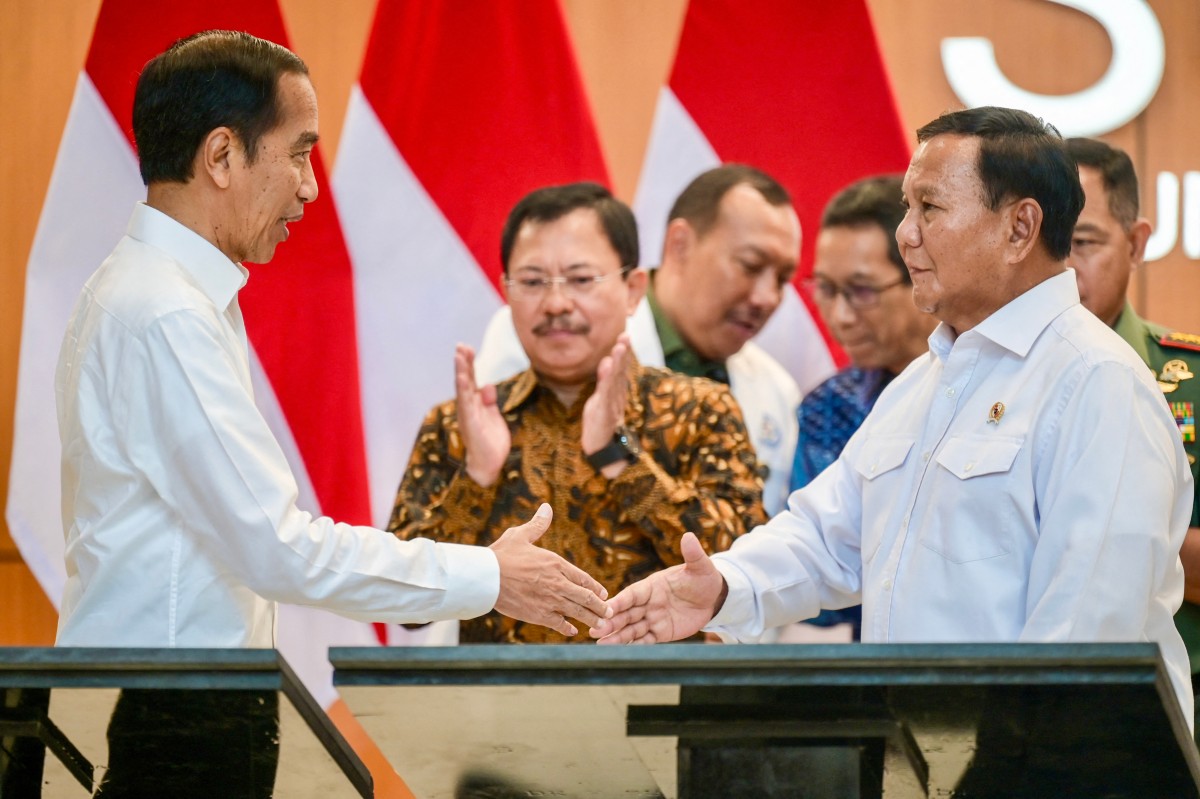Just hours after the polls closed on the late afternoon of Feb. 14, various pollsters simultaneously announced that retired General Prabowo Subianto and Gibran Rakabuming Raka were set to become Indonesia’s next top leaders.
The duo secured an early 60 percent of the vote, sufficient to avoid a presidential runoff with around 85 percent of the votes counted, defeating their rivals: former Jakarta Governor and opposition candidate Anies Baswedan, and former Central Java Governor Ganjar Pranowo.
As of today, the pair has solidified their lead with 59 percent, while their rivals Anies-Muhaimin and Ganjar-Mahfud have secured 25.32 percent and 16.68 percent, respectively. The official election results are still pending and are expected to be released by the KPU next March.
Reactions from Church Leaders
In an interview with LiCAS.News regarding the unofficial results, Indonesian Cardinal Ignatius Suharyo stated, “Whoever is declared the election winner by the KPU, Indonesia’s legitimate electoral agency, all parties are expected to accept the result.” He further emphasized the church hierarchy’s moral obligation to remain non-partisan, adding, “We must preserve national unity.”
Similarly, Pontianak Archbishop Msgr. Agustinus Agus addressed his Catholic congregation in West Kalimantan Province, urging acceptance of the unofficial results and expressing hope that the winning duo would adhere to their commitment to govern within the framework of the nation’s Pancasila and 1945 Constitution, aiming to bring prosperity and peace to Indonesia’s pluralistic society.
Jesuit political ethics expert Prof. Franz Magnis-Suseno remarked, “In a mature and fair democracy, the loser should shift from opposition to support for the winner to foster national unity, while still maintaining a critical stance on the new administration’s governance.”
LiCAS.News also reached out to KWI’s President Mgr. Antonius Subianto Bunjamin OSC, who declined to comment on the matter.
The Future Implications of Prabowo’s Victory
Addressing a large gathering of supporters in a Jakarta sports arena last week, Prabowo, in a softened tone, emphasized that his victory was meant for all Indonesians, urging humility and gratitude.
He pledged, alongside Gibran, to serve and protect all Indonesians, irrespective of their ethnic, racial, religious, or social backgrounds.
“Let’s not be arrogant, despite that we are grateful for the result. This must be a victory for all Indonesian people,” Prabowo declared. “Together with Gibran, I will have to nurture, protect, and defend all the people of Indonesia, regardless of tribe, ethnic group, race, religion, and social background. The people of Indonesia are our responsibility to protect,” he added.
This conciliatory approach marks a significant shift from his reaction to the 2019 election loss, which was followed by widespread violence in Jakarta.
Despite previous defeats in the 2014 and 2019 elections to the highly popular Jokowi, Prabowo demonstrated statesmanship by accepting a cabinet position in Jokowi’s second term, highlighting the unique Indonesian practice of resolving differences through amicable deliberation.
“This is something uncommon to happen in Western countries. How come is it possible that we were once rivals competing in the election, but now these former feuds can sit together in the administration? To answer such a question from Western diplomats,” Prabowo said, “the clue is found in our Indonesian way of life: things can be resolved through friendly-amicable deliberations since we share our common goals,” he argued.
Prabowo’s acknowledgment of Jokowi’s contributions and his commitment to continuing policies, including the development of the new capital, IKN Nusantara, in East Kalimantan, signals a desire for continuity and progress.
However, concerns about ministerial appointments and the potential misuse of state funds by the new administration have been raised by critics and citizens alike.
Who is Prabowo Subianto
Prabowo comes from a prominent family, with his grandfather, Margono Djojohadikusumo, founding a private bank and being a close associate of Indonesia’s first President Sukarno. His father, Prof. Sumitro Djojohadikusumo, served as a cabinet minister during the Sukarno and Suharto eras.
Despite Prabowo’s controversial past and his political ambitions, recent social gatherings hint at a possible reconciliation with his former wife, Titiek Suharto, suggesting a unified front for the future.
Prabowo’s journey has been marked by his pursuit of power, shadowed by his military past, yet his current stance and the public’s response indicate a significant moment in Indonesia’s political landscape.
